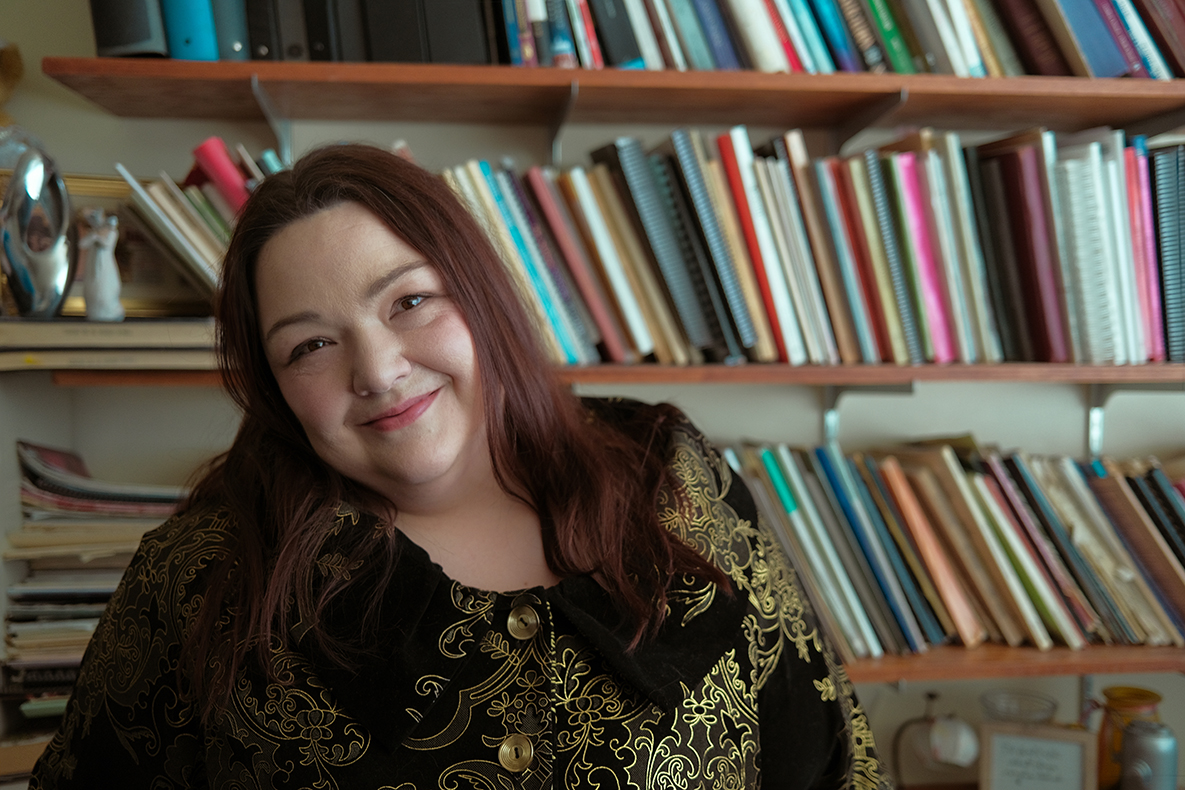If the last four years of Jodi Goble’s life were condensed into an opera, the cast of characters would be considerable. The scenes would shift from anxious pandemic days to applause-filled performances in Paris. There would be singing cats, century-old words from a Japanese poet, the voices of sea creatures floating across the pages of handwritten scores, a constant ping of excited texts, and plenty of Schubert. There would be a lot going on, to say the least.
Goble’s past few years have been busy with creative collaboration, and now she’s piling up some truly buzzworthy achievements. She recently won the 2024 National Association of Teachers of Singing Art Song Composition Award, celebrated the world premieres of two new operas, and wrote a song on a 2024 Grammy-nominated album.
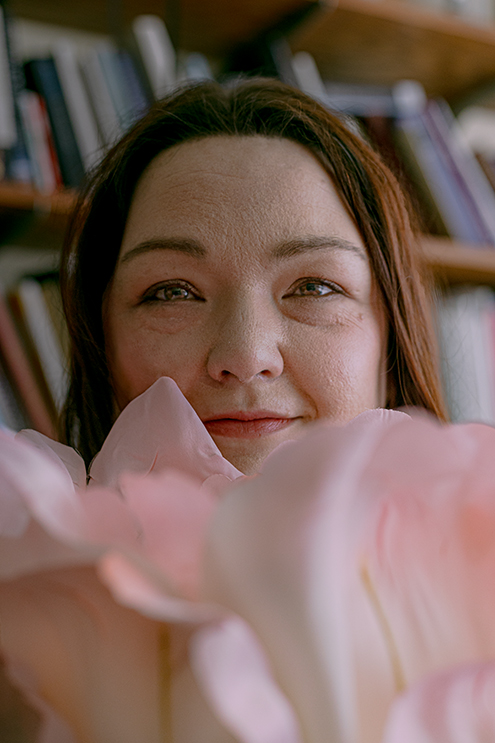
“It’s interesting because if you look at my Instagram or Facebook page, it seems like it all happened at once,” Goble said. “But because I was involved in the generation of it, I know it’s four or five years back that I’ve been talking to people, that we’ve been doing invisible things.”
Goble is a teaching professor in Iowa State’s Department of Music and Theatre, a collaborative pianist, and an accomplished composer whose scores have been performed across the United States and internationally. Many of those works now shimmering in the spotlight arose from a quieter time – March 2020 – when, like everyone else worldwide, she was suddenly faced with the overwhelming absence of live music.
“Composing kept me sane at that point,” Goble said. “I fell into some collaborations with other people who also were unable to do the thing that they normally do. We are all people who run from one thing to the next – no grass grows – so having that much time in stasis was hard. But it was also an opportunity for all those people to start talking to each other and planning. What staves off despair like a future project?”
Permission not to be perfect
Goble began taking piano lessons when she was 4 years old. Her childhood piano teacher was the first person who encouraged her to write music.
“You don’t have any self-consciousness as a child,” Goble said. “You just write down what comes to you, and you don’t worry about whether it’s good or not.”
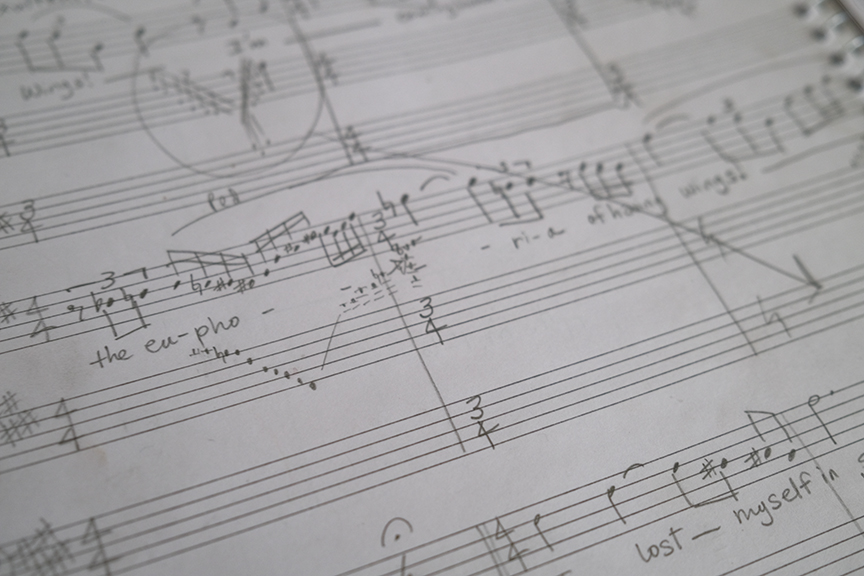
Goble eventually did grow self-conscious while studying music in graduate school and gradually quit writing. However, in her late 20s, a significant health scare caused her to reflect on her priorities and ask herself, “Why did I ever stop?”
The pandemic was also motivation to prioritize.
“Before, I would write if I felt like writing or had a deadline,” she said. “Suddenly, it became much more regimented. I got better at writing something that I knew I wouldn’t like and giving myself permission for it not to be perfect.”
"I got better at writing something that I knew I wouldn’t like and giving myself permission for it not to be perfect.”
Today, Goble writes every morning before her Iowa State students arrive. It’s a structure she chose to embrace during the disruptions of the pandemic.
Love letters to live music
One of Goble’s first pandemic-era collaborations started through Twin Cities-based Really Spicy Opera (RSO). In June 2020, RSO launched the Aria Institute, a virtual program pairing librettists and composers for fast-paced composition rounds. The librettist gets a prompt to write a song for a hypothetical opera, and the composer has 24 hours to set the words to music.
Goble and librettist Basil Considine’s prompt was a woman writing a letter to her mother. “Basil said, ‘Well, it’s for three people. I think the other two characters should be her cats,’” Goble recalled. “I was like, ‘Oh, if I write a trio for three treble voices and two of them are cats, that’s the only thing anyone’s ever going to remember that I wrote.’ But he wore me down.”
The song they wrote virtually in 2020 later became a hit in live performances. RSO performed it in Paris in 2022, where “the crowd kind of went crazy for it,” Goble said. Afterward, the two kept writing until they had a 40-minute chamber opera titled, “Meow and Forever: A Romance in Two Cats.” The playful tango about a young woman’s dating life, her girlfriend, best friend, and two mischievous cats had its staged world premiere at the San Francisco Conservatory of Music in January.
That same summer of 2020, Goble was invited to contribute to another unique collaboration.
Soprano Laura Strickling decided to commission one song each from 40 different composers and produce a classical album in honor of her 40th birthday.
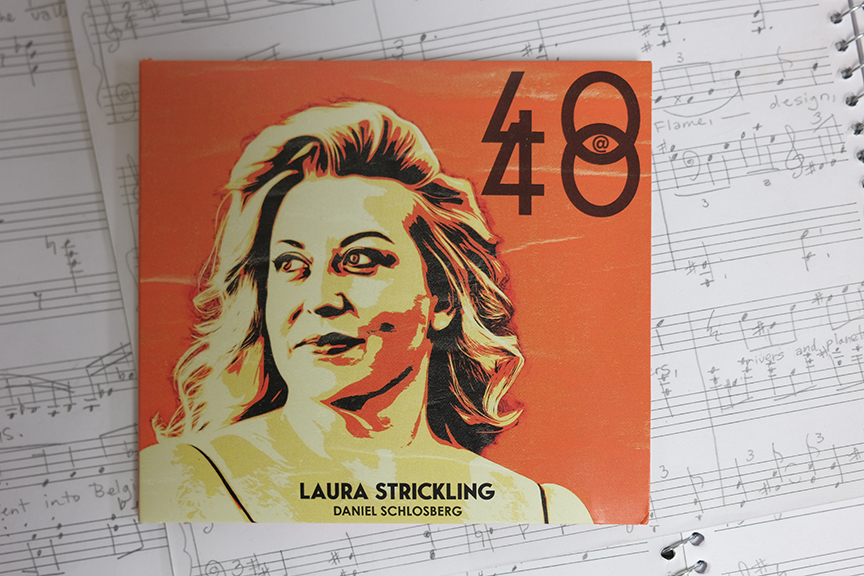
As a text-based composer, Goble often draws upon writers in the public domain, such as Emily Dickinson or Sara Teasdale, for inspiration.
During the solitude of that summer, she spent time reading the digital library Project Gutenberg. She became fascinated by the work and life of Yone Noguchi, a Japanese-born writer who immigrated to San Francisco in the late 1800s and published poetry in English. His hybrid of English language and Japanese poetry forms created slightly odd but beautiful phrases, Goble said.
“Noguchi has this way of talking about music as if it was something embodied, something that exists in the air that you can touch and see,” she said. “It was like a love letter to live music.”
Goble wrote six songs with Noguchi’s poems, and Strickling selected “My Song is Sung” for her album “40@40.” Upon its release, the album claimed the No. 1 Billboard spot for Traditional Classical Albums and later earned a 2024 Grammy nomination.
Winning 'the big one'
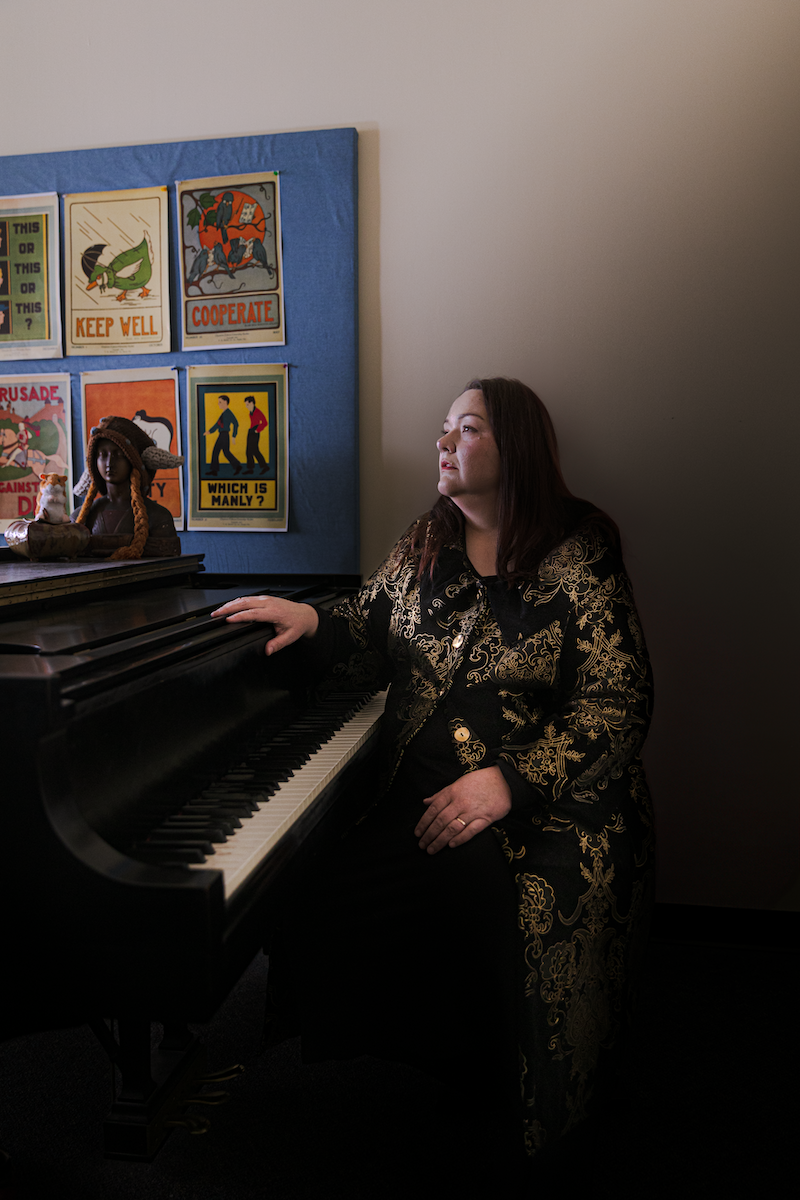
A credit on a Grammy-nominated album is remarkable. But the National Association of Teachers of Singing (NATS) Art Song Composition Award is, in Goble’s words, “the big one.”
Goble won first prize this year in her seventh attempt at entering the competition. She said the encouragement she received from NATS in her early years as a fledgling composer gave her the confidence to keep writing.
Her award-winning song cycle “Sea Creatures” was written with Iowa State alumna Shelby VanNordstrand (‘04 music), associate professor of voice at the University of Nebraska-Omaha and longtime friend and collaborator. The two conceived the theme for the cycle – eight songs about things that live in, around, or under the sea – after Goble first texted VanNordstrand the score for “Sea,” a Katherine Mansfield poem. VanNordstrand was immediately taken with the setting, and the two started searching for other poems that could match its energy.
“Jodi is a wonderful collaborator because she gives precedence not only to musical connection, but also to the human connection,” VanNordstrand said. “Collaborations with Jodi always involve spending time making music and connecting as friends.”
In a unique circumstance, the pair recorded “Sea Creatures” before they ever performed it for an audience. It’s featured on their album “Storms and Stars: Songs for Soprano and Piano,” which was recorded by department engineer Chad Jacobson in Martha Ellen-Tye Recital Hall and supported by VanNordstrand’s faculty development fellowship.
A good year
Goble ended the spring semester with another world premiere in collaboration with librettist Victoria Erickson, another RSO friend. Their new opera is a female-centric adaptation of Franz Schubert's iconic song cycle "Die schöne Müllerin” in celebration of its 200th anniversary. Supported by the National Endowment for the Arts and the Iowa Arts Council, "The Miller's Daughter: A New World Schubertiade" premiered in Martha Ellen-Tye Recital Hall in April with ISU Opera Studio and guest artists.
After a whirlwind year of recognitions and premieres, Goble is excited about what's next.
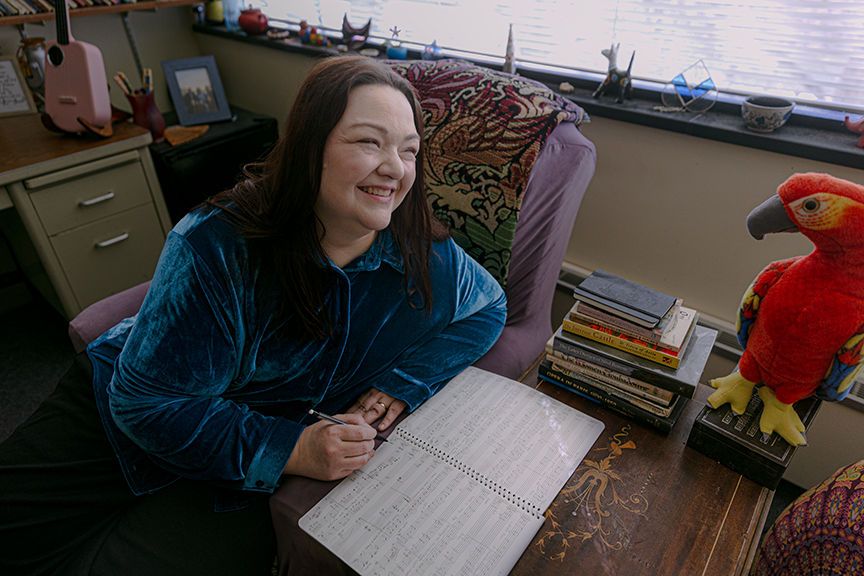
"What I'm finding is having a good year means that all the connections I've made, there are more people reaching out who want to collaborate," she said. "I'm in this era right now where I'm setting contemporary text by people who I'm newly friends with and that feels great.”
Listen to some of Goble's featured compositions
"My Song is Sung," performed by Laura Strickling below and also available on Apple Music
"Dear Mom" from "Meow and Forever"
"Storms & Stars," including the "Sea Creatures" cycle, available on Apple Music
